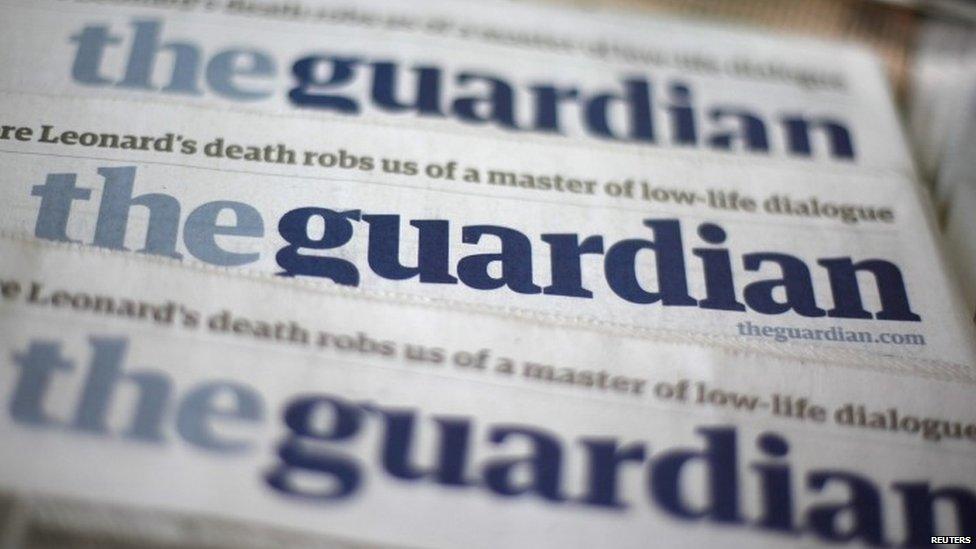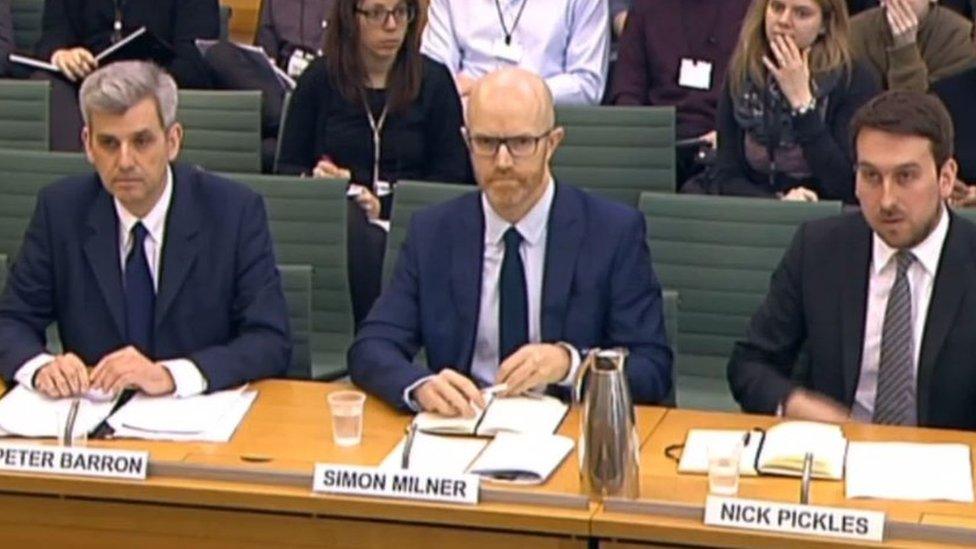YouTube: UK government suspends ads amid extremism concerns
- Published

Navy recruitment ads are among those believed to be affected
The government has removed its adverts from YouTube amid concerns they are appearing next to "inappropriate" material on the video-sharing site.
The Cabinet Office said it was seeking assurances from YouTube's owner Google that its messages would be displayed in a "safe and appropriate way" in future.
The Guardian, external, Channel 4 and the BBC have also pulled ads citing similar worries.
Google said it would review its controls.
The firm has been attacked by MPs in the past for not doing more to curb online hate speech.
The internet giant said it had "strict guidelines" about the placement of adverts but conceded "we don't always get it right".
A recent investigation by the Times found adverts were appearing alongside content from supporters of extremist groups, making them around £6 per 1,000 viewers, as well as making money for the company.
Ministers have summoned Google for talks at the Cabinet Office after imposing a temporary restriction on its own ads - including for military recruitment and blood donation campaigns - appearing on YouTube.
'Strict guidelines'
The Cabinet Office said digital platforms such as YouTube were a "cost-effective" way of reaching mass audiences but the taxpayer demanded high standards and it would be seeking action following recent negative media coverage.
"Google is responsible for ensuring the high standards applied to government advertising are adhered to and that adverts do not appear alongside inappropriate content," a spokesman said.

The Guardian has also pulled its advertising from YouTube
"We have placed a temporary restriction on our YouTube advertising pending reassurances from Google that government messages can be delivered in a safe and appropriate way."
Google acknowledged its record was not perfect and said it was committed to "doing better".
"We have strict guidelines that define where Google ads should appear," a spokesman said. "In the vast majority of cases, our policies work as intended, protecting users and advertisers from harmful or inappropriate content.
"We accept that we don't always get it right and that sometimes, ads appear where they should not...We will make changes to our policies and brand controls for advertisers."
'Safe environment'
But Channel 4 has questioned whether YouTube remains a "safe environment" for advertisers, saying it had removed all its promotions with immediate effect.
"We are extremely concerned about Channel 4 advertising being placed alongside highly offensive material on YouTube," said Dan Brooke, the broadcaster's chief marketing and communications officer.
"It is a direct contravention of assurances our media buying agency had received on our behalf from YouTube."
The Guardian has withdrawn all its advertising from both Google and YouTube after it said a promotion for a membership scheme had been inadvertently placed next to extremist material, including videos of American white nationalists, a hate preacher banned in the UK and a controversial Islamist preacher.
David Pemsel, the media group's chief executive, said the error had been "completely unacceptable."
During a recent appearance before the Commons Home Affairs Committee, executives from Facebook, Twitter and Google were told they had a "terrible reputation" for dealing with problems and should be policing their content more effectively, given the billions they made.
- Published14 March 2017

- Published7 March 2017

- Published7 March 2017
